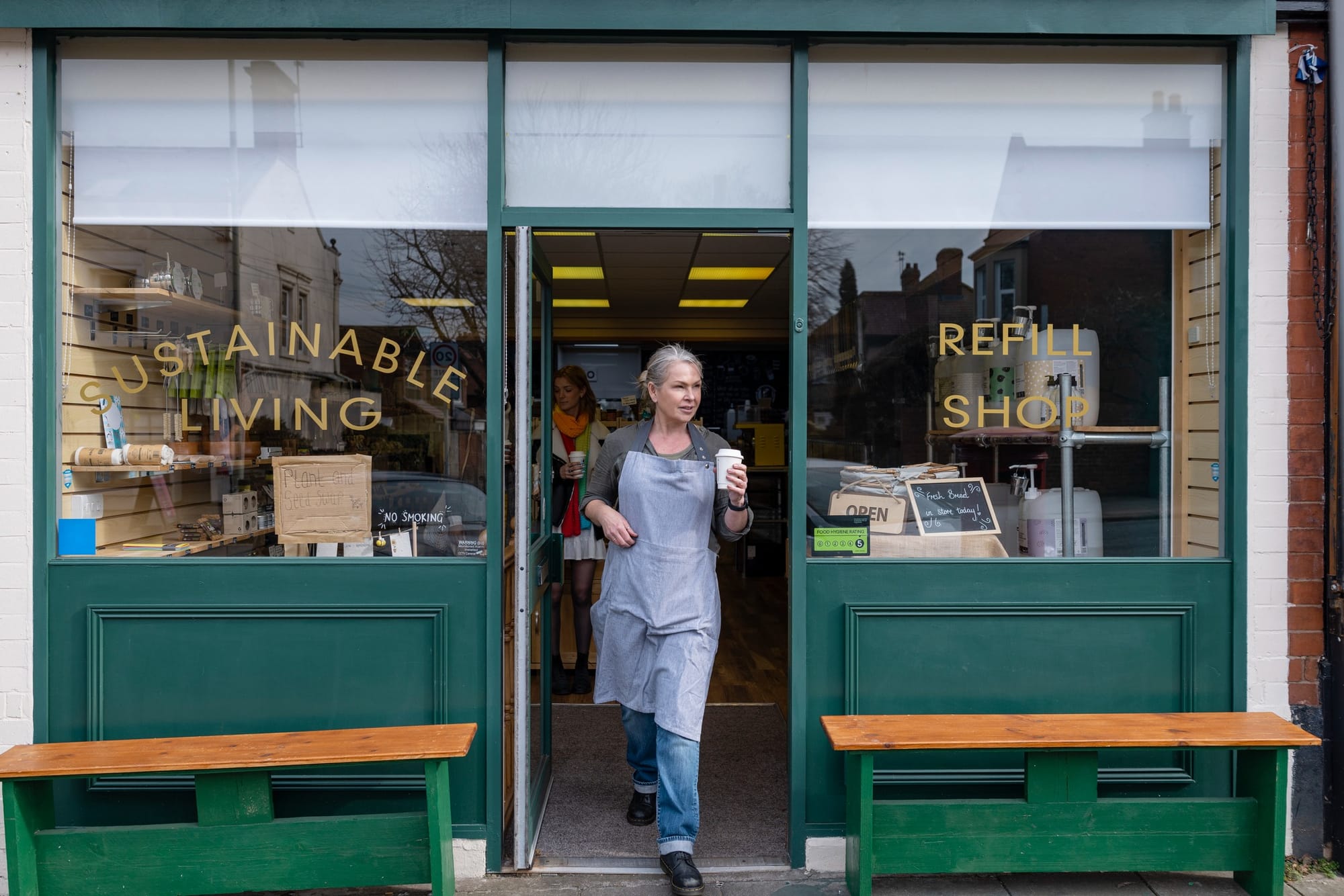
It’s been a tough few years for shoppers and retailers alike, with cost-of-living pressures on households resulting in consumers re-evaluating their budgets, pulling back on retail spending, and changing their retail habits in anticipation of ongoing financial concerns.
But while pricing and promotions continue to be an influential factor in consumer spending behaviour, there’s a growing segment of values-driven shoppers that are increasingly contemplating the social and environmental impact of their purchases.
To better-understand the attitudes and behaviours of Australians when it comes to sustainability, Monash Business School’s Australian Consumer and Retail Studies (ACRS) research unit surveyed a national sample of the population as part of a larger retail study, the ACRS Retail Monitor.
Findings of the latest report, released today (Monday, 15 July), found that almost half of Australian shoppers (46%) report that sustainability is an important factor when making a retail purchase – and that consumers are becoming savvier when deciding if a product or brand is sustainable.
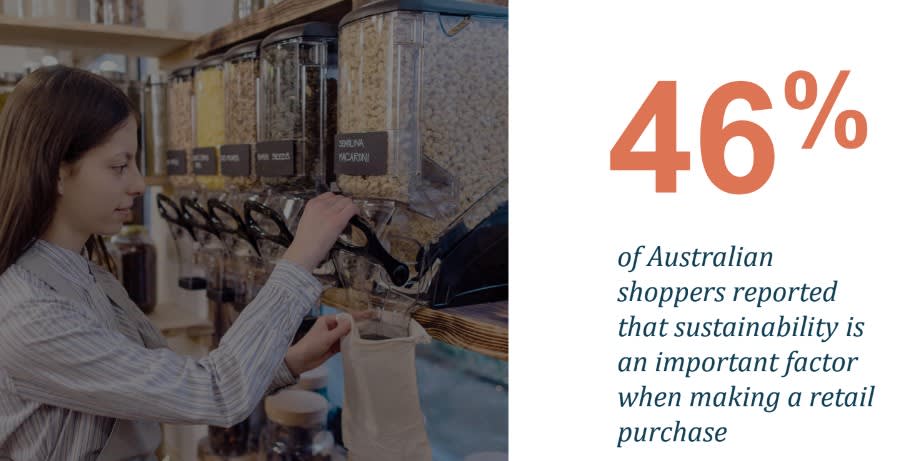
Shoppers use product and packaging cues to decide whether a product is sustainable
Almost a third of shoppers (30%) report that they frequently or very frequently look for sustainable products when making a retail purchase, and a further 38% do so occasionally. Only 12% of Australian shoppers report that they never look for sustainable products.
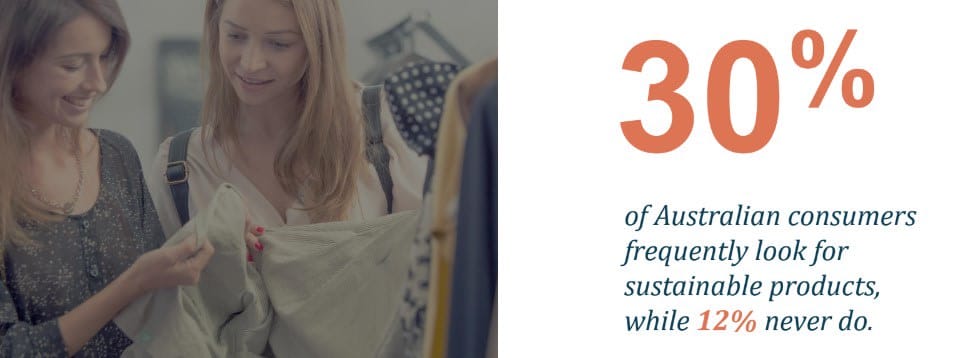
Consumers are constantly required to make decisions about every aspect of their daily lives. Choice difficulty generally increases:
1. as the number of alternatives and attributes increases
2. if some attribute values are difficult to process.
When deciding if a product is sustainable, shoppers look for cues to make quick decisions, and seem to focus more on the packaging or the product itself, rather than the labelling.
The two most common ways the shoppers who look for sustainable products personally decide if a product is sustainable or not is whether the packaging is recyclable (62%), and whether the product can be recycled (59%), followed by whether the product can be reused or re-purposed, and whether the product is made from recycled materials (both at 45%).
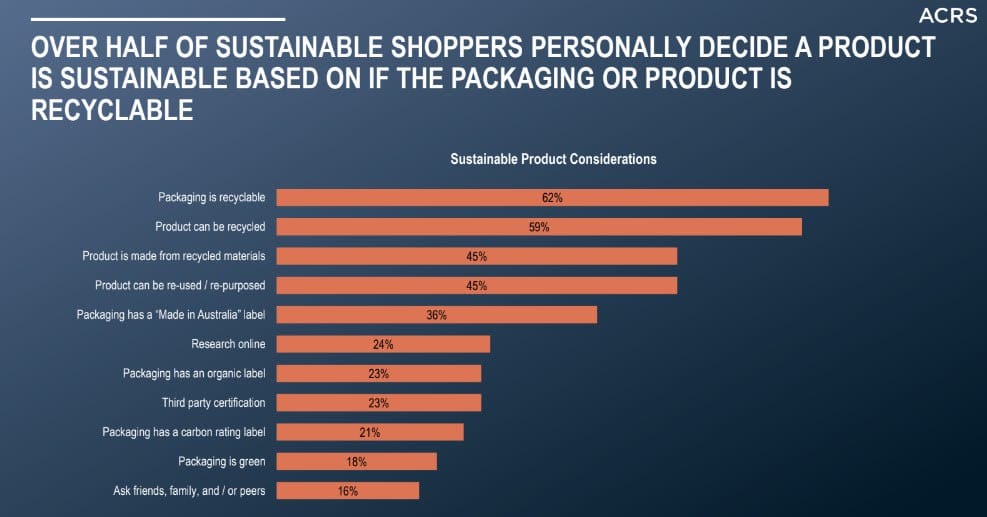
Labelling seems less important for sustainable consumers, with just under a quarter of shoppers (23%) using third-party certifications to determine if a product is sustainable, and slightly less basing their decision on whether the packaging has a carbon rating label (21%) or green packaging (18%).
Sustainable lifestyle practices are important to most consumers
From a lifestyle perspective, most Aussie shoppers are engaging with sustainable lifestyle practices and are committing to them.
Consistent with our research from previous years, almost all Australian shoppers (96%) had engaged in at least one type of sustainable practice in the past three months.
Most Australians reported that they bring their own shopping bags to stores (79%, up from 77% in 2023), recycle product waste (65%, up from 62% in 2023), and almost half reported that they’re reducing the number of new products they buy (40%, on par with 2023 at 41%).
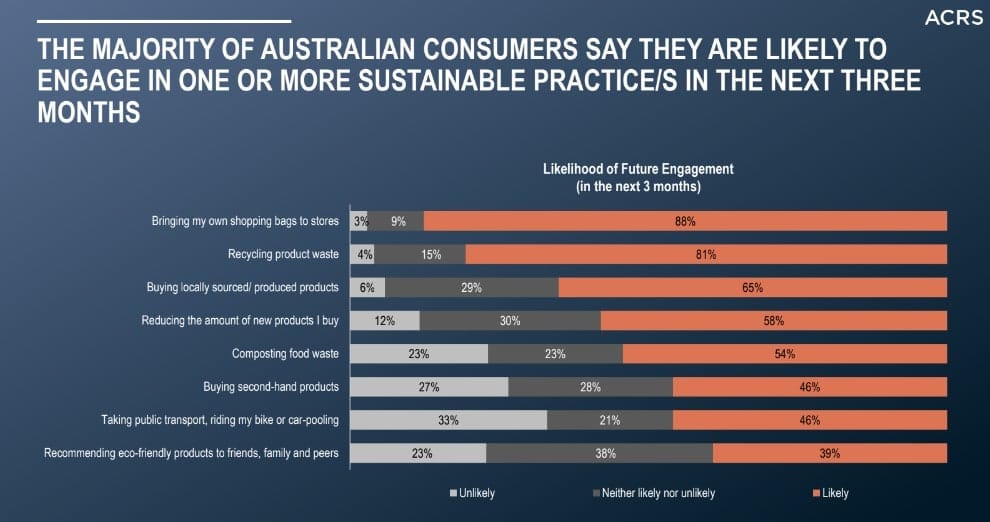
Among those who engaged in various sustainability practices, the vast majority say they engage in these practices frequently.
For example, 96% of shoppers who bring their own shopping bags to stores say they do so on a regular basis. Similarly, nine in 10 shoppers who recycle product waste say that they engage in this activity frequently (92%), while almost eight in 10 shoppers who say they’re reducing the number of new products they buy, do so frequently (78%).
And the good news is that an overwhelming number of Australians say they’re likely or very likely to participate in some form of sustainable retail practice in the future (97%; up slightly from 96% in 2023).
Younger and older Australians differ significantly in their sustainable practices
Australian shoppers of all ages engage in a range of sustainable practices, but they differ significantly in the types of practices in which they engage.
Younger consumers, aged 18-34 years, tend to take public transport, buy second-hand products, and recommend eco-friendly products to friends, family, and peers more than other age groups. Older Australian shoppers, aged 55 and over, engage in these practices significantly less than other age groups.
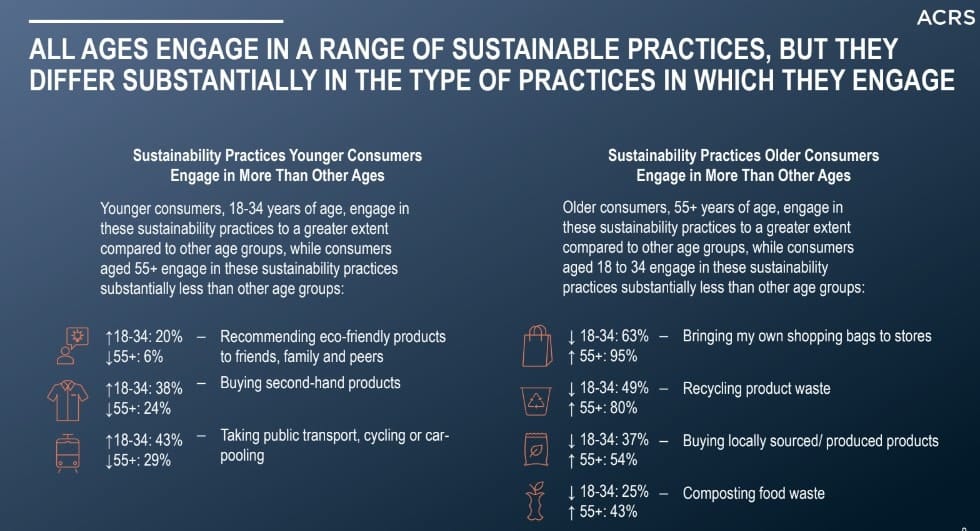
On the other hand, older Australian shoppers, aged 55 and over, bring their own shopping bags to stores, recycle product waste, and compost food waste significantly more than other age groups. Their younger counterparts, aged 18 to 34, engage in these practices considerably less than other age groups.
Young Australians say they’re willing to pay more for sustainable choices
Despite cost-of-living pressures leading Australian shoppers to change their spending and retail habits, ACRS’s latest study suggests that some shoppers are still willing to pay more for products and brands that align with their values.
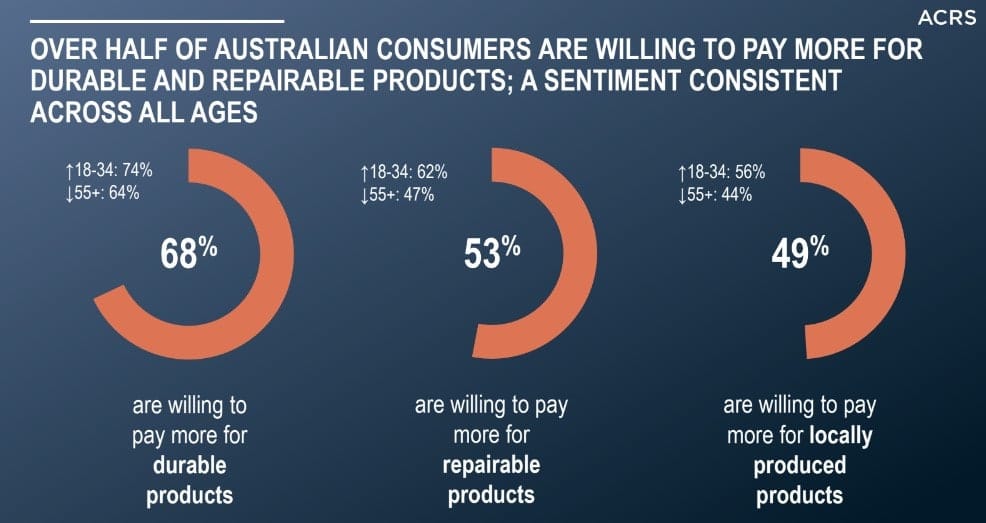
Just under half of Australian consumers say they’re willing to pay more for products that are ethically produced (42%), while slightly less say they’re willing to pay more for products packaged in recyclable materials (40%) and products made with recyclable materials (38%).
Interestingly, younger consumers, 18-34 years of age, are significantly more likely to say they’re willing to pay more for all of these types of products (55%, 49%, and 50%, respectively).
What this means for retailers
While sustainability perceptions and practices may differ among shoppers, the positive shifts in the general attitudes and behaviours of shoppers demonstrate that sustainability is no longer a trend, but a consumer movement – and retailers that are not just responding to this movement, but that are genuinely embedding sustainability into their business strategy, will resonate with consumers despite the current climate.
Ethical Clothing Australia accredited brand Denimsmith is just one of these companies paving the way for sustainability by creating a “repair and re-wear” service that provides customers their first repair free of charge, and $40 for subsequent repairs.
Another is Oroton, which recently partnered with eBay Australia to encourage customers to resell preloved Oroton items in return for an Oroton voucher, in an effort to contribute to the circular economy.
Note about the research: The ACRS Retail Monitor investigates Australian consumers’ shopping preferences, attitudes, and behaviour. Data on sustainability was collected from n=1002 randomly-selected Australian shoppers in June 2024.





